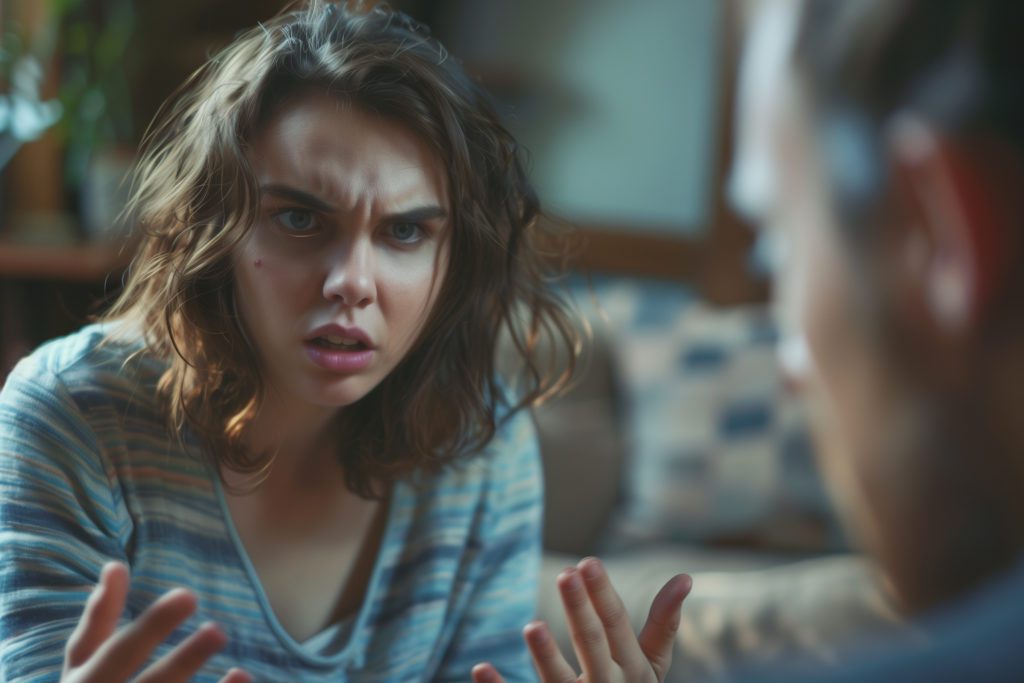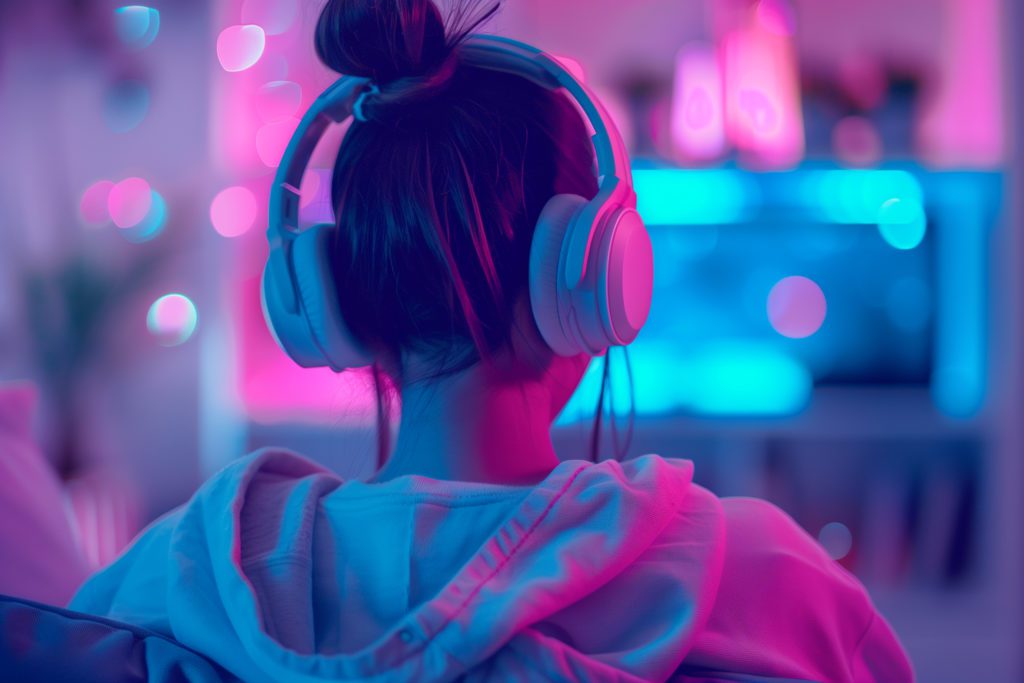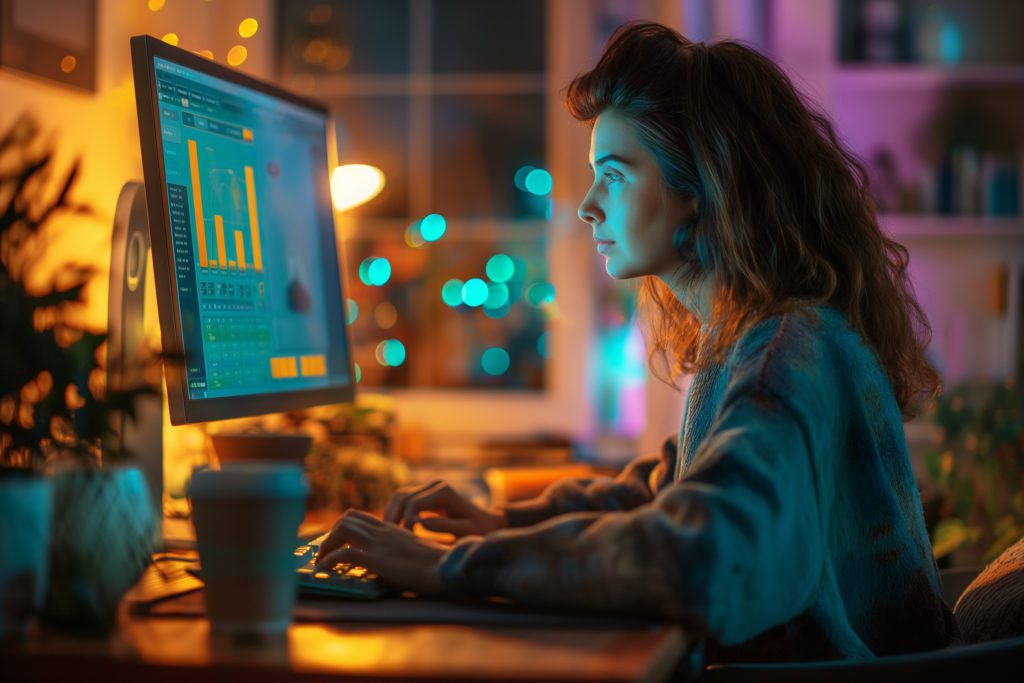
Why Do I Feel More Creative When Sleep Deprived?
Exploring the link between sleep and creativity to explain why some people feel more creative when sleep deprived.

Is sleeplessness your muse? You're not alone if you feel more creative when you're sleep deprived. Many people feel inexplicable bursts of energy the morning after they haven't slept. For some, this can translate into creative energy that allows them to power through work tasks, hit the gym with boundless enthusiasm, or organize the entire house. The problem is that it's not a good thing. If this sounds familiar, you may be relying on your body's stress response to get things done with help from cortisol and adrenaline that create "false" energy. In this article, we'll explore the relationship between sleep and creativity to get to the bottom of why it can sometimes feel so darn good to get very bad sleep.
Mistaking Cortisol for Creativity: How Does Sleep Impact Creativity?
The truth is that the creative flow you feel surging through your body is actually a cortisol spike. As you may already know if you're focused on health and wellness, cortisol is a stress hormone that the body releases in response to danger, fear, and stressors. Cortisol spikes that accompany sleep deprivation are part of the brain's attempt to cope with not having an opportunity to rejuvenate itself. More on that in a minute!
The immediate thing to know is that those creative peaks that come when you're short on sleep could be causing your overall long-term health to plummet. Sleep quality has a huge impact on cardiovascular health. What's more, the creative work that you're doing may not be as good as your sleep-deprived judgment assumes that it is. Yes, tired people make more mistakes than well-rested people.
Why Do I Feel More Creative When Sleep Deprived?
As we covered above, the simplest answer is cortisol. Cortisol creates a false sense of energy when your body perceives that it is under threat. It's also believed that these cortisol-induced bursts of energy help to elevate mood. That mood boost is what gives you the "walking on air" feeling that often makes you feel more creative when you're tired.
While cortisol is often associated with negative attributes due to the fact that it's a stress hormone that is linked to everything from weight gain to metabolic disorders, the truth is that cortisol is essential to human survival. When we are in threatening situations, a cortisol surge helps us to stay active and alert until we can escape the situation. However, we aren't meant to live in a constant state of elevated cortisol. The body is only supposed to rely on cortisol spikes to get through brief, acute scenarios. When we suffer from chronic sleep deprivation, the body can stay in a state of cortisol overload that can quickly take a toll on physical and mental health. Hypercortisolism and long-term hypothalamic-pituitary-adrenal (HPA) axis disturbances linked with poor sleep may even be factors in the development of Cushing's syndrome.
What Really Happens to Your Body When You Don't Sleep?
While sleep onset exerts an inhibitory effect on cortisol secretion, awakenings trigger cortisol stimulation. Chronic sleep deprivation has been proven to diminish cognitive performance, alter mood states, and deregulate inflammation and stress hormones. Even just one night of no sleep can alter biomarkers in the body. Cortisol levels increase during both the nighttime period of sleep deprivation and the wakefulness period that occurs the following day. That explains why you often begin to feel more "wound up" as the sleepless night goes on.
There's still so much more to know about how a "creative" cortisol morning harms health. Sleep deprivation is linked with changes in appetite hormone signaling, physical activity, eating behavior, and fat-loss rates. As a result, lack of sleep is also linked with a long list of risk factors that includes weight gain, lowered immune system, memory problems, accidents, mood issues, depression, stroke, and asthma. For people counting on the creative surges that come from sleep deprivation to get things done, that creative flurry comes with a steep price. The worst part is that the creative spurts that come when sleep is sparse are mostly illusions that pale in comparison to what could be accomplished with a well-rested brain.
How a Sleep-deprived Brain Can Trick You Into Thinking You're Riding a Creative High
Sleep deprivation amplifies the reactivity of the brain's reward networks. That means that you may be experiencing biased positive emotional experiences. This altered perception could be responsible for the positive, high-energy feelings that some people experience when they're running on little to no sleep. It could also cloud your judgement.
In the same way that brain processing during sleep deprivation can actually lead to life-threatening risk behaviors, it can also cause poor judgment when working on cognitive tasks. It has long been known that sleep-deprived people in workplace settings have elevated error rates when performing tasks. In addition, cognitive errors and lapses in attention rise double and triple during periods of sleep deprivation.
Final Thoughts: Creativity Is Often Just a Dream for Sleep-deprived People
What have we learned? While the creative surges that can come after a sleepless night can feel revolutionary in the haze of the early glow of the morning, the creativity that you're experiencing is actually the body's stress response. Cortisol is the primary hormone driving what can often feel like an experience of creative mania for some people. Adrenaline and other hormones tied to the body's stress response are also running in the background. This can make judgement when getting tasks done even more questionable due to the fact that adrenaline can alter our perceptions and decision-making abilities.
If you're chasing a creative spree, the secret may be in a good night of rest. While it may not sound quite as romantic as being a restless artist, sleep has actually been shown to improve problem-solving skills and the ability to estimate semantic distance. Both are important aspects of thinking creatively.
Why do I feel more creative when sleep deprived? The key sentiment here is feel. While the influences of cortisol and adrenaline might make you feel like you're bursting with creative fervor, what you're really experiencing are the effects of your body's stress response. True creativity is born from a solid night of rest. The same goes for better physical and mental health.

Written by
Emily Mendez
Emily Mendez is a former therapist and mental health author. She is one of the leading voices in mental health. Emily's writing has appeared in eCounseling, SonderMind, and more. Emily is frequently interviewed by Healthline, Fatherly, INSIDER, Family Circle, and other national media for her advice and expert opinion on the latest mental health topics.
Download Pillow
Get help
Press & News
Legal
Connect
X (Twitter)
Company
Copyright © Neybox Digital Ltd.


